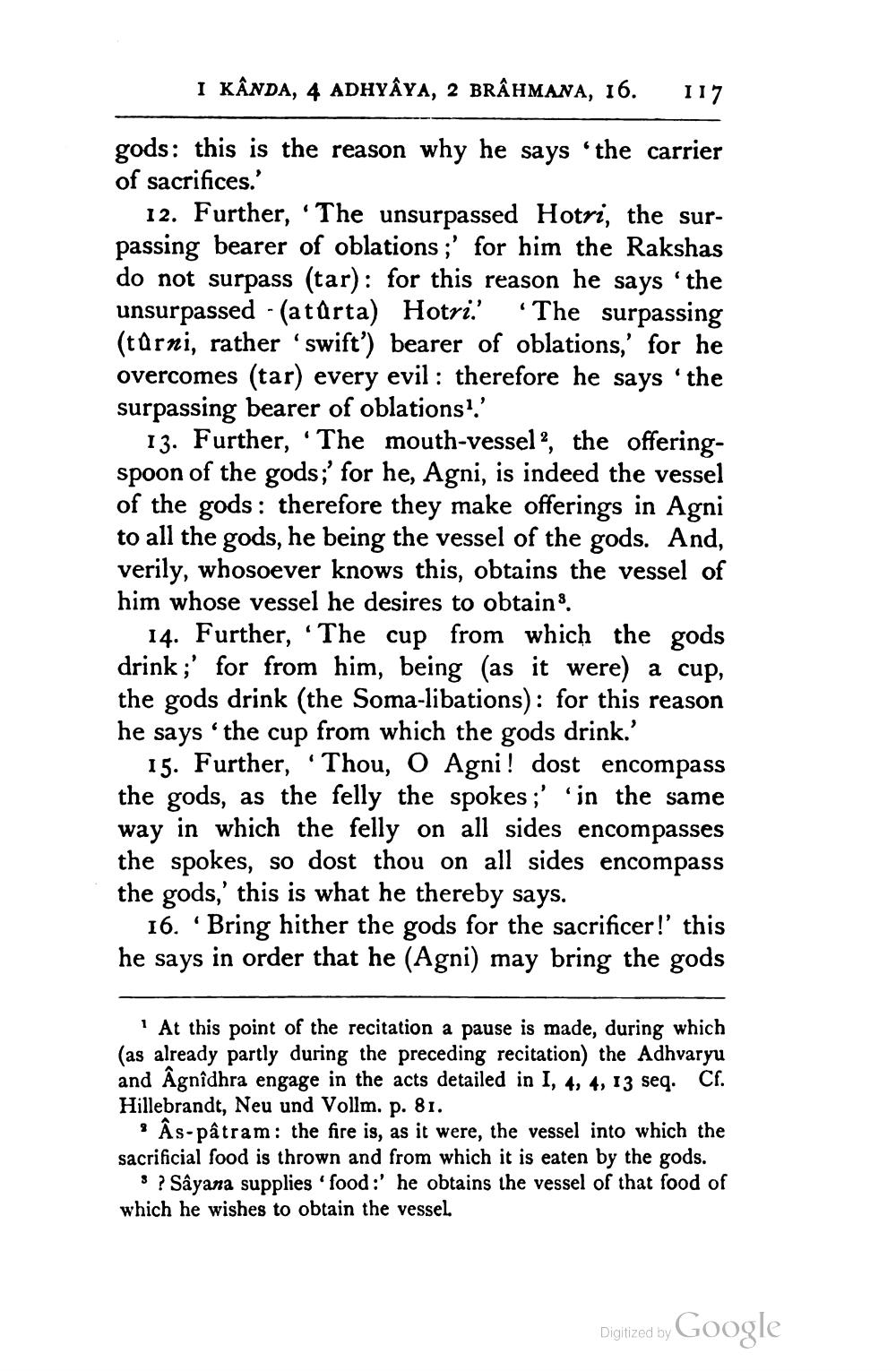________________
I KANDA, 4 ADHYAYA, 2 BRAHMANA, 16.
117
gods: this is the reason why he says 'the carrier of sacrifices.'
12. Further, 'The unsurpassed Hotri, the surpassing bearer of oblations;' for him the Rakshas do not surpass (tar): for this reason he says 'the unsurpassed (atûrta) Hotri.' 'The surpassing (turni, rather 'swift') bearer of oblations,' for he overcomes (tar) every evil: therefore he says 'the surpassing bearer of oblations'.'
13. Further, The mouth-vessel, the offeringspoon of the gods;' for he, Agni, is indeed the vessel of the gods: therefore they make offerings in Agni to all the gods, he being the vessel of the gods. And, verily, whosoever knows this, obtains the vessel of him whose vessel he desires to obtain3.
"
14. Further, 'The cup from which the gods drink;' for from him, being (as it were) a cup, the gods drink (the Soma-libations): for this reason he says 'the cup from which the gods drink.'
15. Further, Thou, O Agni! dost encompass the gods, as the felly the spokes;' 'in the same way in which the felly on all sides encompasses the spokes, so dost thou on all sides encompass the gods,' this is what he thereby says.
"
16. Bring hither the gods for the sacrificer!' this he says in order that he (Agni) may bring the gods
At this point of the recitation a pause is made, during which (as already partly during the preceding recitation) the Adhvaryu and Agnîdhra engage in the acts detailed in I, 4, 4, 13 seq. Cf. Hillebrandt, Neu und Vollm. p. 81.
As-pâtram: the fire is, as it were, the vessel into which the sacrificial food is thrown and from which it is eaten by the gods. 3? Sâyana supplies 'food:' he obtains the vessel of that food of which he wishes to obtain the vessel.
Digitized by
Google




